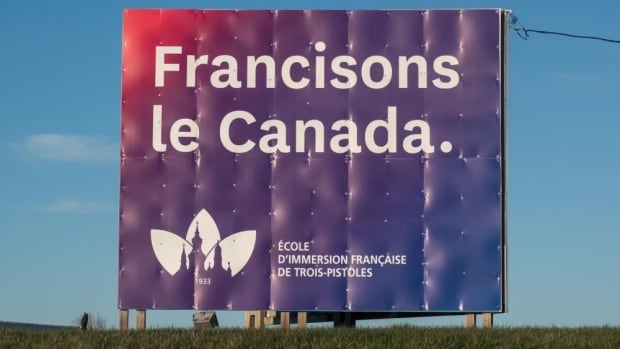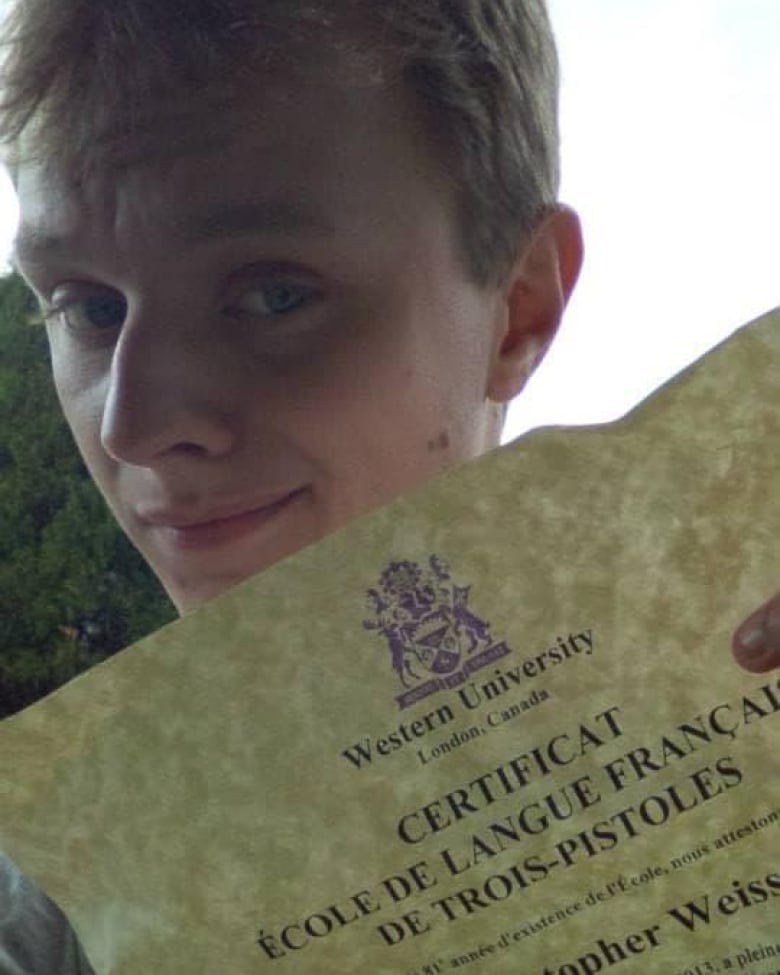
For three generations, Marie-Michèle Barrette’s family has been welcoming students into their homes as part of a French immersion program in the small Quebec town of Trois-Pistoles.
Her grandmother boarded students for over 60 years, and Barrette continued the family tradition for the first time last year.
But this year, the program was suspended. And facing a dwindling number of host families, Western University — the London, Ont., institution that operated the French immersion school — announced this month it’s ending the program.
“There are families here who are heartbroken … who feel neglected by this institution which was a part of us,” said Barrette.
“This is personally part of my family’s culture.”

Barrette, a representative of the committee of families pushing for the re-establishment of the program, says the town initially thought Western was open to “finding solutions.”
“We felt they’d heard that the immersion school is beneficial, yes for our little town, but even more so for their own university,” said Barrette.
“It’s a great loss for us, and we’re also very aware that it’s a great loss for the people … who are losing this opportunity to come and learn French in Quebec.”
Western University declined a request for an interview from CBC News.
But in an emailed statement, it said after an extensive review, it determined the program is “misaligned with Western’s strategic priorities,” and suggested it was looking for another university to take up the French immersion program in Trois-Pistoles.
“Recognizing the deep roots this program has within the Trois-Pistoles community, Western has been exploring the feasibility of transitioning the program to another university whose mission and resources are better aligned to ensure a successful program,” the statement said, adding it was not in a position to disclose the name of the institution.
‘It’s going to be a loss’
Growing up in Trois-Pistoles, which is about 250 kilometres from Quebec City on the south shore of the St. Lawrence River, where the language program has been in place for upward of 90 years, Barrette says it has been an “economic motor” for residents.
She says it’s made the town, which has a population of about 3,000, become a place for cultural exchange.
“We’re not a small community that’s prejudiced because we’re immersed in multiculturalism year-round, thanks to the immersion school,” said Barrette.

Krystopher Weiss says that openness benefited both students and residents.
“They would always welcome us with open arms,” said Weiss, who attended the program in 2013.
“It’s going to be a loss for the university.”
But even a decade ago, he recalls funding and budgetary restraints being a concern.
Since the pandemic, the school lost over half of its billets, according to the program’s former director. Western initially said it suspended the 2024 summer program while undertaking an “external review.”
It’s a pause that was palpable, says Mayor Philippe Guilbert.
“Something was missing in the city,” said Guilbert.
“It has so much impact. Economic impact and social impact on our community.”
‘Program is not dead yet,’ says mayor
Although the town understood the program might be in jeopardy, and had launched a campaign for more host families and support, the news of the program’s closure came as a shock to Guilbert.
“Some are frustrated, some are disappointed,” said Guilbert.
He’s choosing to remain optimistic but says the main hurdle will be building another program “from scratch.”
“The program is not dead yet,” said Guilbert.
“We just have to face the reality that it will not be with Western University … but we will try to keep it alive with another university.”